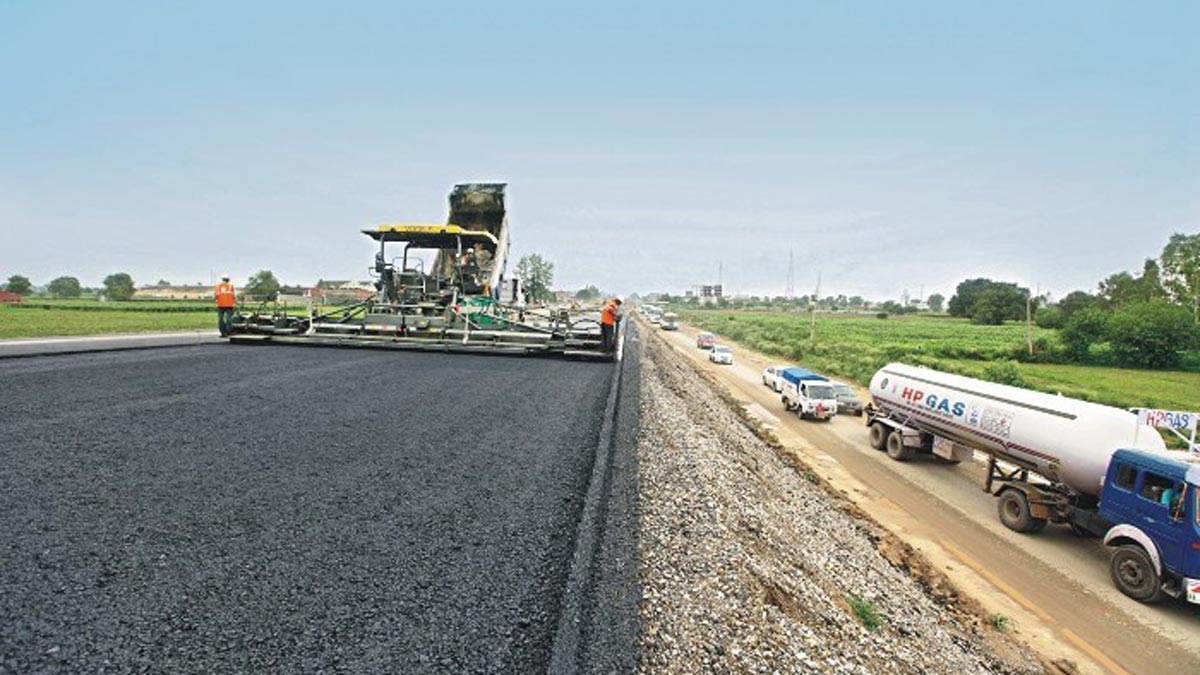- Lagos-Ibadan Road: FG Okays N64bn for Bridges, Toll Plazas
The Federal Executive Council on Wednesday approved N64.108bn for additional work on the Lagos-Ibadan Expressway.
The additional work will be done on Section I of the road from Lagos to the Sagamu interchange.
The Minister of Power, Works and Housing, Babatunde Fashola, disclosed this to State House correspondents at the end of a meeting of the council presided over by President Muhammadu Buhari at the Presidential Villa, Abuja.
Fashola said the additional work would cover pedestrian bridges as well as toll plazas for that section in order to accommodate the changing nature of the road.
He stated, “The council approved additional work on Section 1 of the Lagos-Ibadan Expressway. The council approved additional work on over 43.6 kilometres for N64.108bn, which cover pedestrian bridges and toll plazas for that section so as to accommodate the changing nature of that road.
“Since its conception, so many new structures: religious institutions, factories, universities and increased human activities, have come up along that road.
“The inherited design didn’t provide for these at all. The additional work is also to modify the quality of bitumen, polymer modified bitumen, in order to deal with the heavy cargo that passes through that road.
“The first section is handled by Julius Berger. The second section under RCC, which covers over 80 kilometres, will come to council to incorporate similar work, including drainage work when we finish the procurement.”
Fashola added that the council approved the award of the Subaila-Falala-Bini-Baku-Bauchi Road that connects Kano and Bauchi states for N4.578bn.
The Minister of State for Agriculture, Heneiken Lokpobiri, said the council approved new 10 rice mills for the country at a cost of N10.7bn.
He listed the states where the mills would be located as Kebbi, Zamfara, Benue, Kogi, Bayelsa, Anambra, Kaduna, Niger, Ogun and Bauchi.
Each of the mills, according to him, will have the capacity to produce 100 tonnes of rice per day, and the private sector would manage them.
Lokpobiri said, “Today, FEC approved the establishment of 10 very large rice mills to enhance the milling capacity of the rice value chain in the country.
“Few years ago, it was reported that this country needed a minimum of 100 large mills. As of today, we have about 21, but the Federal Government, in its wisdom, decided that today we should approve the establishment of 10 new rice mills at the total cost of N10.7bn.
He said the cost of the mills would be paid back within a given timeframe as would be agreed between the Bank of Agriculture and the rice mills.
“The states will be 10. Nigeria, over 30 states are growing rice; in today’s memo, the 10 rice mills will be located across the six geopolitical zones in Kebbi, Zamfara, Benue, Kogi, Bayelsa, Anambra, Kaduna, Niger, Ogun and Bauchi states.
“The capacity of the rice mills is 100 tonnes per day each.”
The Senior Special Assistant to the President on Media and Publicity, Garba Shehu, disclosed that N10bn was approved to fight erosion in the country.
He also said that $460m was approved to facilitate the usage of new buildings at airports.
The Minister of Health, Prof. Isaac Adewole, said FEC also approved the licensing agreement between the National Institute for Pharmaceutical Research and Development and May and Baker Plc.
This, he said, was in respect of scaling up commercialisation and marketing of Niprisan, a potent anti-sickle cell drug, for use in Nigeria.
The minister explained, “As you might be aware, sickle cell disease is a common problem, particularly among blacks in Africa, South East Asia and Latin America, and it is estimated that about 25 per cent of Nigerians carry the sickle cell gene and over two million people have sickle cell anaemia, that is having the two genes combined.
“And for many of them, when they are under stress, they take ill; what happens is invariably they develop severe bone crisis, they develop infection and some of them will die from this.”
He added, “This drug was first used in Oyo State over 20 years ago and NAPRED conducted clinical trials to ensure that we are able to document that it was safe and efficacious, and the drug was licensed at an international organisation, which went into bankruptcy.
“What we have done is to reactivate the product and it will now be marketed in Nigeria through this agreement, and we believe that the marketing and production in Nigeria will bring a lot of comfort to millions of Nigerians who are infected with the sickle cell gene.”
Adewole said the council also approved the construction of a trauma centre at Federal Medical Centre, Owerri at the cost of N840.8m.
He said the centre would be completed in 48 weeks.
The minister said, “We expect that it will serve as a first-class centre of care for accident and trauma cases along the Port Harcourt, Owerri and Enugu axis, and will really change the dynamics of care in these areas.
“The approval of Naprisan is coming on the eve of an approval granted by government for us to establish a department of traditional medicine in the Federal Ministry of Health.
“This will be the first time that this will happen and that department will really provide us the leeway to research into many of our traditional products, and the first mandate of this department will be to look into the cure for malaria in our forest.”

 Forex4 weeks ago
Forex4 weeks ago
 Naira3 weeks ago
Naira3 weeks ago
 Billionaire Watch3 weeks ago
Billionaire Watch3 weeks ago



 Naira3 weeks ago
Naira3 weeks ago






 Naira3 weeks ago
Naira3 weeks ago


 Naira2 weeks ago
Naira2 weeks ago






 Naira2 weeks ago
Naira2 weeks ago
 Commodities4 weeks ago
Commodities4 weeks ago























